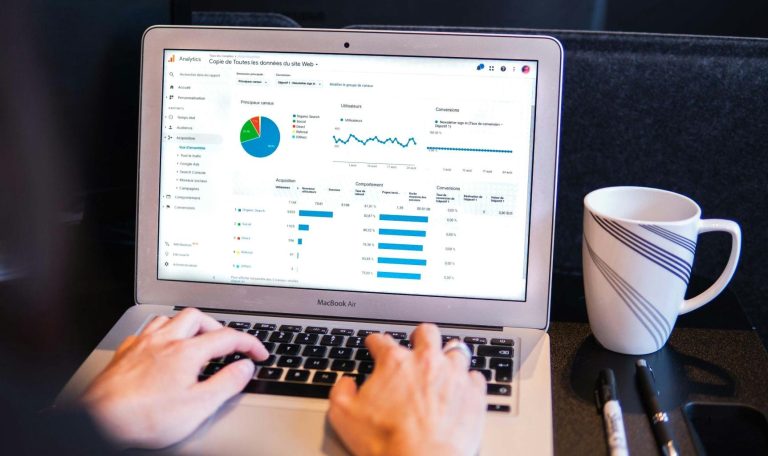B2B social media marketing is evolving at breakneck speed. As we approach 2025, new trends are reshaping how businesses connect and engage with their clients online.
At Emplibot, we’ve identified five key B2B social media marketing trends that will dominate the landscape in the coming year. These trends promise to revolutionize how companies approach their social media strategies and drive meaningful results.
Contents
Toggle1. AI Revolutionizes B2B Social Media Personalization
AI-powered personalization transforms B2B social media marketing in 2025. B2B organizations will face a two-pronged challenge next year: realizing ROI on AI investments and navigating the generational shift in business buying. Advanced algorithms analyze vast amounts of data to create tailored content that resonates with specific business audiences. These AI systems incorporate factors like past interactions, industry trends, and real-time market fluctuations to deliver hyper-relevant messages.
Predictive analytics emerges as another game-changer in B2B social media strategies. B2B marketing stats keep showcasing the changing nature of the industry, so marketers should learn how to use that data quickly. Tools like Salesforce Einstein offer marketers the ability to forecast which content will perform best for different audience segments. This capability allows companies to optimize their social media calendars and allocate resources more effectively. To stay competitive, B2B marketers should:
-
Invest in AI-powered tools
-
Build comprehensive customer data profiles
-
Implement predictive analytics in their strategies
As we move forward, the integration of video content in B2B social media strategies becomes increasingly important, complementing the personalization efforts driven by AI.
2. Video Content Rules B2B Social Media
Video content dominates B2B social media strategies in 2025. Short-form social media videos prove highly effective for quick engagement. Marketers plan to boost video content distribution in 2024. These bite-sized videos excel at showcasing product features, sharing customer testimonials, or delivering quick industry insights.
Long-form video content plays an equally important role for in-depth education and thought leadership. Webinars and detailed product demonstrations gain traction. Live streaming emerges as a powerful tool for real-time interaction with audiences. Platforms like LinkedIn Live enable businesses to host:
-
Q&A sessions
-
Product launches
-
Industry discussions
These formats foster direct engagement with potential clients. To leverage video effectively, B2B marketers should create a mix of short and long-form content, tailored to different stages of the buyer’s journey. As video content continues to shape B2B social media strategies, LinkedIn solidifies its position as the go-to platform for professional networking and business growth.
To maximize the impact of video content, marketers should also stay current with trending topics and hashtags, which can significantly boost content visibility and engagement.
3. LinkedIn Dominates B2B Social Media in 2025
LinkedIn cements its status as the premier B2B social media platform in 2025. The platform’s enhanced networking features, including AI-powered connection suggestions and improved group functionalities, facilitate more meaningful professional relationships. LinkedIn’s content distribution algorithms now prioritize industry-specific content, ensuring posts reach the most relevant audience. This targeted approach results in higher engagement rates, with B2B marketers reporting an increase in lead generation compared to other social platforms.
The integration of AI-powered tools for better targeting on LinkedIn transforms B2B marketing strategies. These tools analyze user behavior, company data, and industry trends to provide marketers with actionable insights for content creation and ad targeting. As a result, B2B companies experience an improvement in ROI on their LinkedIn marketing efforts. According to a survey of B2B marketers, 87% of those polled said the ROI on their ABM campaigns was higher than that of their other marketing expenditures. To maximize LinkedIn’s potential, B2B marketers should:
-
Create high-quality, industry-specific content
-
Utilize LinkedIn’s advanced targeting options
-
Actively participate in relevant professional groups
These strategies help businesses establish thought leadership, generate quality leads, and drive significant growth through this powerful B2B platform. As LinkedIn continues to evolve, it paves the way for more sophisticated Account-Based Marketing (ABM) strategies that integrate seamlessly with social media efforts.
4. ABM Meets Social Media in 2025
Account-Based Marketing (ABM) strategies fully embrace social media in 2025, creating a powerful synergy for B2B marketers. This integration allows for highly targeted, personalized content delivery to key accounts across multiple social platforms. ABM combines different parts of B2B marketing, using inbound marketing like website content and SEO to attract clients, instead of traditional methods. Companies see significant increases in engagement rates with target accounts by leveraging social media data to inform their ABM strategies.
The multi-channel approach combining social and traditional methods proves particularly effective. For example, a major tech company’s ABM program saw a 300% increase in response rates when they coordinated their LinkedIn advertising with personalized email campaigns and direct mail. To implement this strategy effectively, B2B marketers should:
-
Identify high-value accounts
-
Use social listening tools to gather insights about these accounts’ pain points and interests
-
Create tailored content for each account
-
Distribute content across relevant social channels
While platforms like LinkedIn offer robust targeting options for ABM, Twitter and Facebook also hold potential for reaching decision-makers in specific industries. As ABM strategies evolve to incorporate social media, the role of user-generated content in B2B marketing gains significant traction.
5. UGC Reshapes B2B Social Media Strategies
User-generated content (UGC) transforms B2B social media marketing in 2025. A recent study reveals that B2B companies are increasingly incorporating UGC into their social media strategies, resulting in improved engagement rates. This shift stems from the growing trust in peer recommendations, with buyers more likely to purchase after reading a trusted review. Companies leverage customer testimonials and case studies across platforms like LinkedIn and Twitter, showcasing real-world applications of their products or services.
Employee advocacy programs emerge as a powerful tool for amplifying B2B messages. The 2024 Edelman Trust Barometer reveals a new paradox at the heart of society, with rapid innovation offering the promise of a new era of prosperity. Forward-thinking companies implement structured programs that encourage and incentivize employees to share company content, industry insights, and personal experiences on their professional social media profiles. Collaborative content creation with industry partners also gains traction, with B2B marketers reporting improved lead quality through co-created content shared on social platforms. This approach not only expands reach but also enhances credibility through association with respected industry players. To maximize the impact of UGC in B2B social media strategies, companies should:
-
Actively solicit and showcase customer testimonials and case studies
-
Develop and implement employee advocacy programs
-
Collaborate with industry partners on content creation and distribution
As UGC continues to reshape B2B social media strategies, companies must adapt their approaches to harness its full potential and stay ahead in the competitive digital landscape.

Final Thoughts
B2B social media marketing trends will reshape business connections and audience engagement in 2025. AI-powered personalization, video content dominance, LinkedIn’s rise, ABM integration, and user-generated content offer exciting opportunities for B2B marketers. Companies that embrace these trends will position themselves to reach target audiences, generate quality leads, and drive business growth effectively.
Emplibot understands the challenges B2B marketers face in keeping up with rapid changes. We’ve developed a comprehensive solution to help businesses stay ahead of the curve. Our automated content marketing platform handles keyword research, content creation, and SEO optimization, ensuring your B2B social media marketing efforts remain on point.
The B2B social media marketing landscape will continue to evolve. Staying informed about these trends and leveraging tools like Emplibot will help businesses navigate this dynamic environment with confidence. Companies can drive meaningful engagement and achieve their marketing goals in the years to come by adapting to these shifts in the digital landscape.










 Rated Excellent 4.5
Rated Excellent 4.5